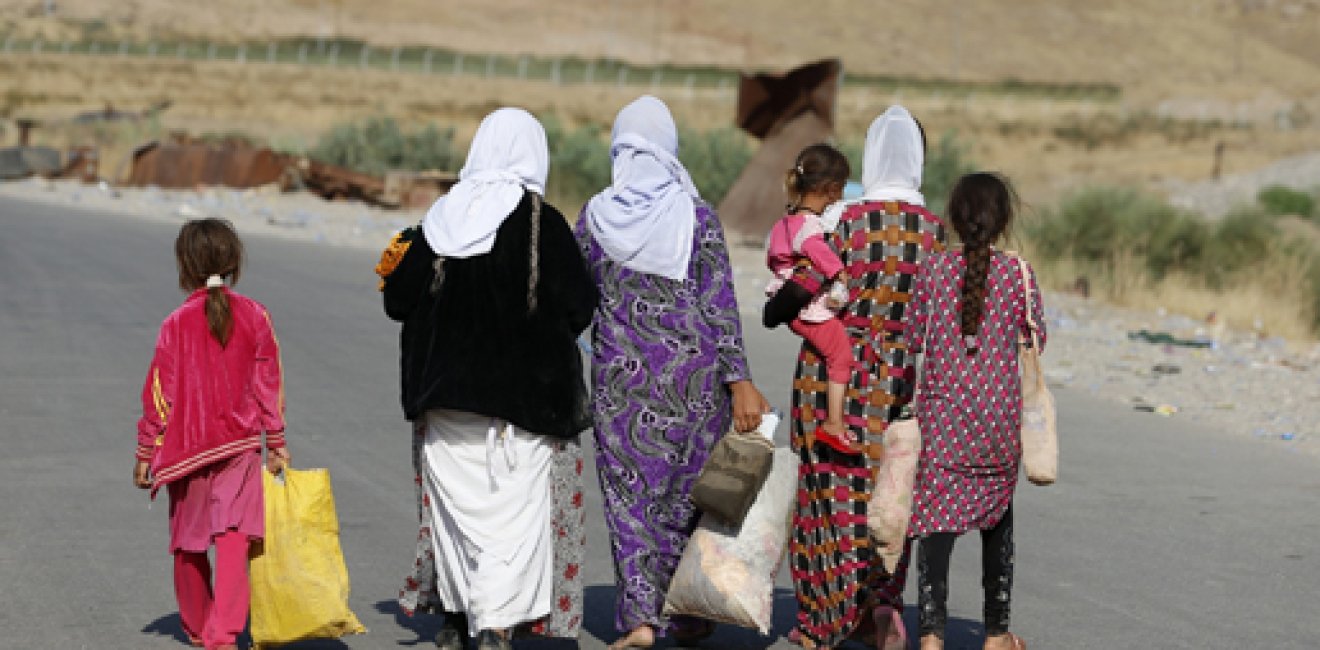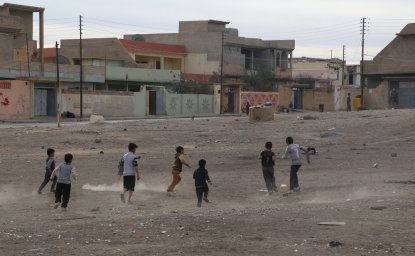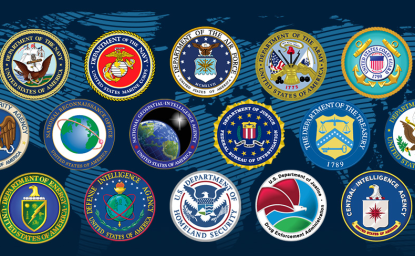Last August, Vian Dakhil pleaded with her colleagues in the Iraqi parliament, and for the outside world, to pay attention to the atrocities Islamic State was inflicting on Yazidi men and women. She told of Yazidi women and girls being kidnapped, separated from their families, taken from their homes, and enlisted into sexual slavery.
A year later, the world is well aware of ISIS’s brutality—yet the plight of Yazidi women has grown worse. Interviews with women who managed to escape ISIS slave camps and phone calls by women who were taken provide harrowing accounts of enslavement, abuse, and repeated rape; of human beings trafficked and sold to different partners. There are makeshift markets where men can choose their sex slaves. Zainab Bangura, the United Nations special representative on sexual violence in conflict, has reported that ISIS has sold abducted teenagers at slave markets “for as little as a pack of cigarettes.” Ms. Bangura cited an internal ISIS document that lists prices for female slaves—often the younger the girl, the higher the price.
ISIS has an elaborate, organized structure for its sexual slave trade, much like it developed an infrastructure for basic services in territories it has claimed. The New York Times reported this week that ISIS planned to establish a sex market before its attack on Iraqi Yazidis on Mount Sinjar last August. The report details how ISIS uses religion to justify rape and sexual slavery and to entice new recruits. A 12 year-old girl repeatedly raped by an ISIS fighter described her experience: The man would go down on his knees and pray before and after raping her, she said, viewing his violation of her as a means of “drawing closer to God.” ISIS considers the sexual use and abuse of Yazidi women as permitted under Islam because they are “infidels.” This distorted interpretation of Islam permits the rape of girls as young as 9.
Muslims and the international community need to do much more to end these barbaric practices. A number of Muslim theologians have challenged Islamic State’s misuse of passages in the Quran to rationalize its abuse of women, but many more need to speak out—and repeatedly. The world must hear much more from the teachers and thinkers at the great centers of Islamic learning such as al-Azhar in Egypt, Najaf in Iraq, and Qum in Iran. They can provide leadership and set a new tone.
And while many countries have denounced ISIS and its beheadings, mass executions, and other horrific acts, little effort has been devoted to rescuing women taken as its sexual slaves. When attempted, rescue efforts have largely been uncoordinated. A sort of “underground railroad” has been organized by Yazidi activists to help free women from ISIS. These activists sometimes purchase the women at slave markets to return them to their families. Such efforts need to be supported and expanded and, where possible, backed by the use of military special forces.
Then there is the plight of Yazidi women and girls who have escaped or been freed from sexual slavery. Although victims of rape and sexual violence, such women face shame and ostracism in their own communities. Last year, Yazidi religious leader Baba Sheikh issued a statement encouraging Yazidis to accept women returning from ISIS territory and to help reintegrate them; a recent U.N. refugee report based partly on interviews with Yazidi survivors said that they have been welcomed back to their communities largely because of Baba Sheikh’s exceptional proclamation. Although welcome, this inclusive attitude of one religious leader is not yet a cause for celebration. The Islamic world needs many more voices like Baba Sheikh’s—as well as an all-out effort to address the ISIS threat.
The opinions expressed here are solely those of the authors.
This article was originally published in The Wall Street Journal.







